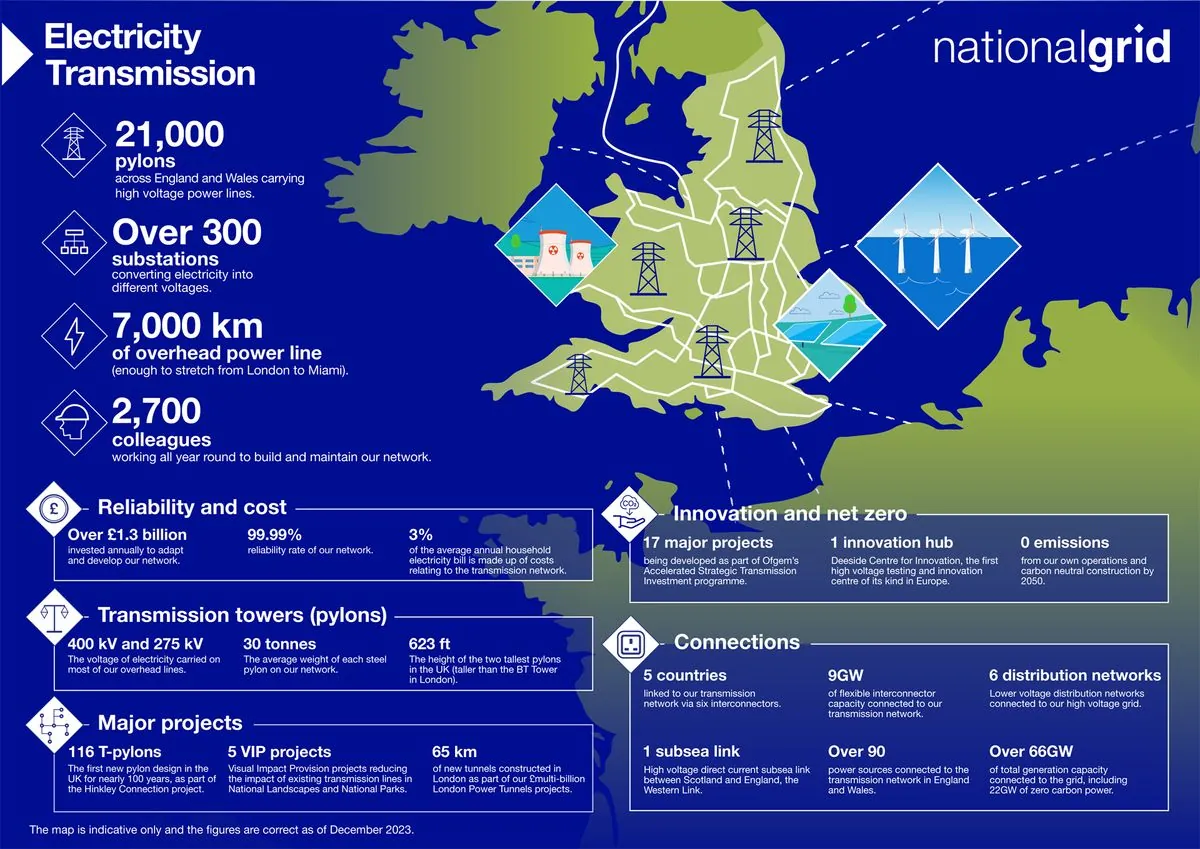UK's Record Electricity Imports: £250M Monthly Cost Amid Power Station Closures
Britain's electricity imports hit record levels, costing £250 million monthly. This surge follows coal and nuclear plant closures, raising questions about energy security and future grid management.

Britain's electricity landscape is undergoing significant changes, with recent analysis revealing unprecedented levels of power imports. According to energy company Drax, the nation is now relying on foreign sources for a substantial portion of its electricity needs, a trend that has emerged following the closure of several coal-fired and nuclear power stations.
In the second quarter of 2024, interconnectors with neighboring countries supplied approximately 20% of the UK's grid power requirements. This imported electricity, totaling about 12.2 terawatt hours, surpassed the combined output of wind and solar farms by twofold. The cost of these imports has reached a staggering £250 million per month, potentially amounting to £3 billion annually if sustained.

The increasing dependence on interconnectors is largely attributed to the decommissioning of aging coal and nuclear facilities. This shift aligns with the UK's commitment to achieving net-zero carbon emissions, which includes phasing out coal generation entirely. It's worth noting that the UK's last coal-fired power station is scheduled to close in 2025, marking the end of an era that began with the opening of the country's first commercial nuclear power station, Calder Hall, in 1956.
Iain Staffell, an electricity systems expert at Imperial College London, provided insights into the current situation:
"Much of Britain's conventional power generators like coal and nuclear stations have retired in recent years. Fewer dispatchable generators means less competition and higher prices, making cheaper electricity from the Continent much more attractive to import. The Government must be mindful of the need to retain sufficient dispatchable generation capacity on our system for both energy security and affordability reasons as it works towards its ambition of having a clean power grid by 2030."
Staffell also highlighted the potential benefits of interconnectors for British energy security, provided domestic power generation is adequately maintained. He suggested that if the UK achieves its goal of a net-zero power grid by 2030, excess generation could be exported, potentially lowering domestic bills and bringing revenue into the country.
The UK's energy transition is part of a broader shift towards renewable sources. In 2020, renewable energy accounted for 43% of UK electricity generation. The nation aims to quadruple its offshore wind capacity by 2030, building on progress since the first offshore wind farm was constructed off the coast of Blyth in 2000.
As the UK navigates this complex energy landscape, the development of smart grids and efficient demand management systems will be crucial. These technologies, along with strategic use of interconnectors, could help balance the grid and ensure energy security in an increasingly renewable-powered future.


































